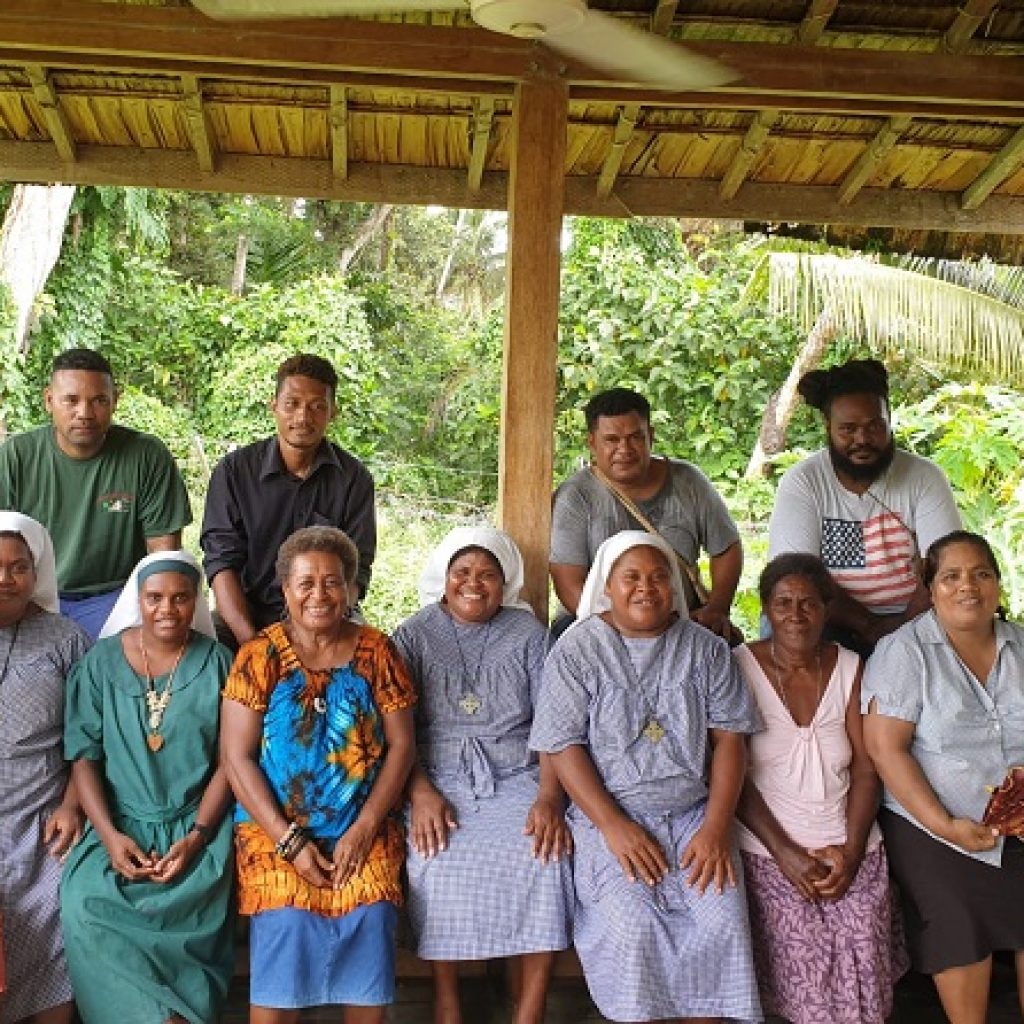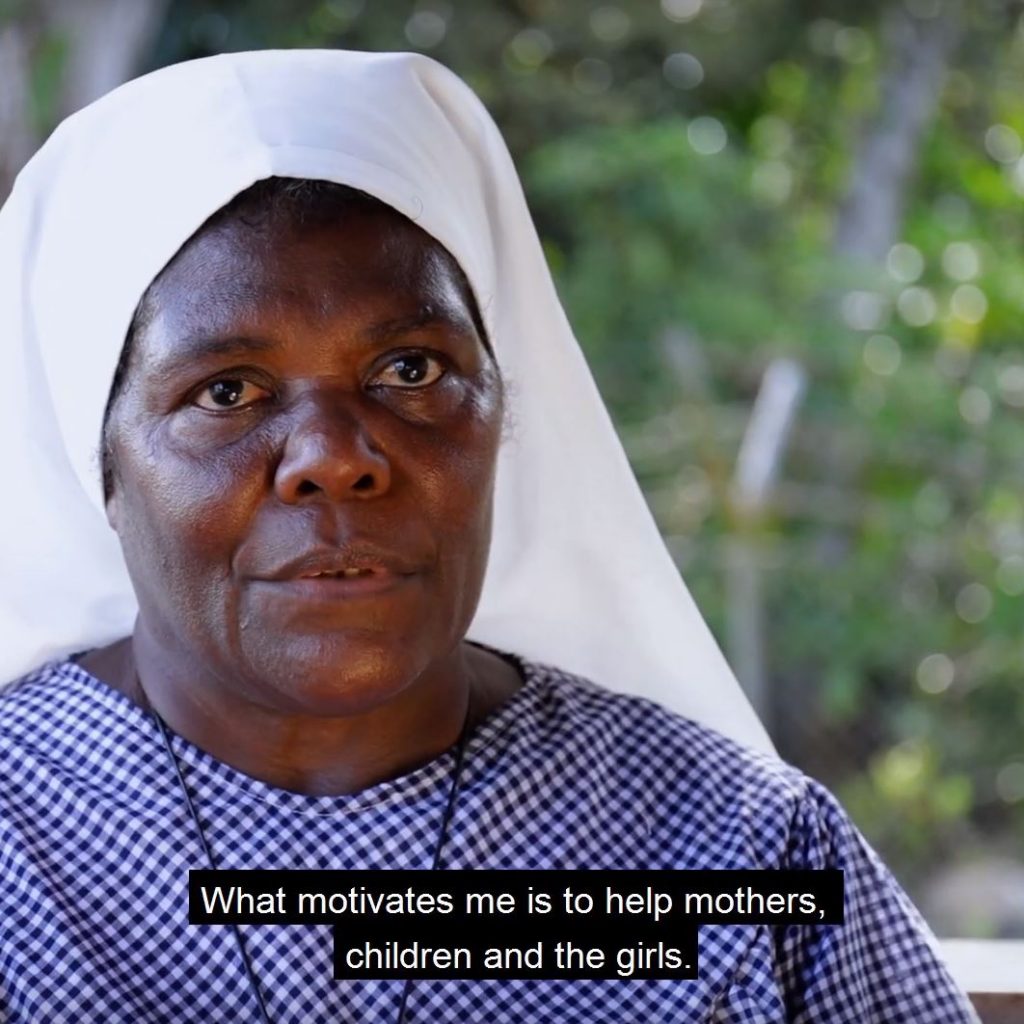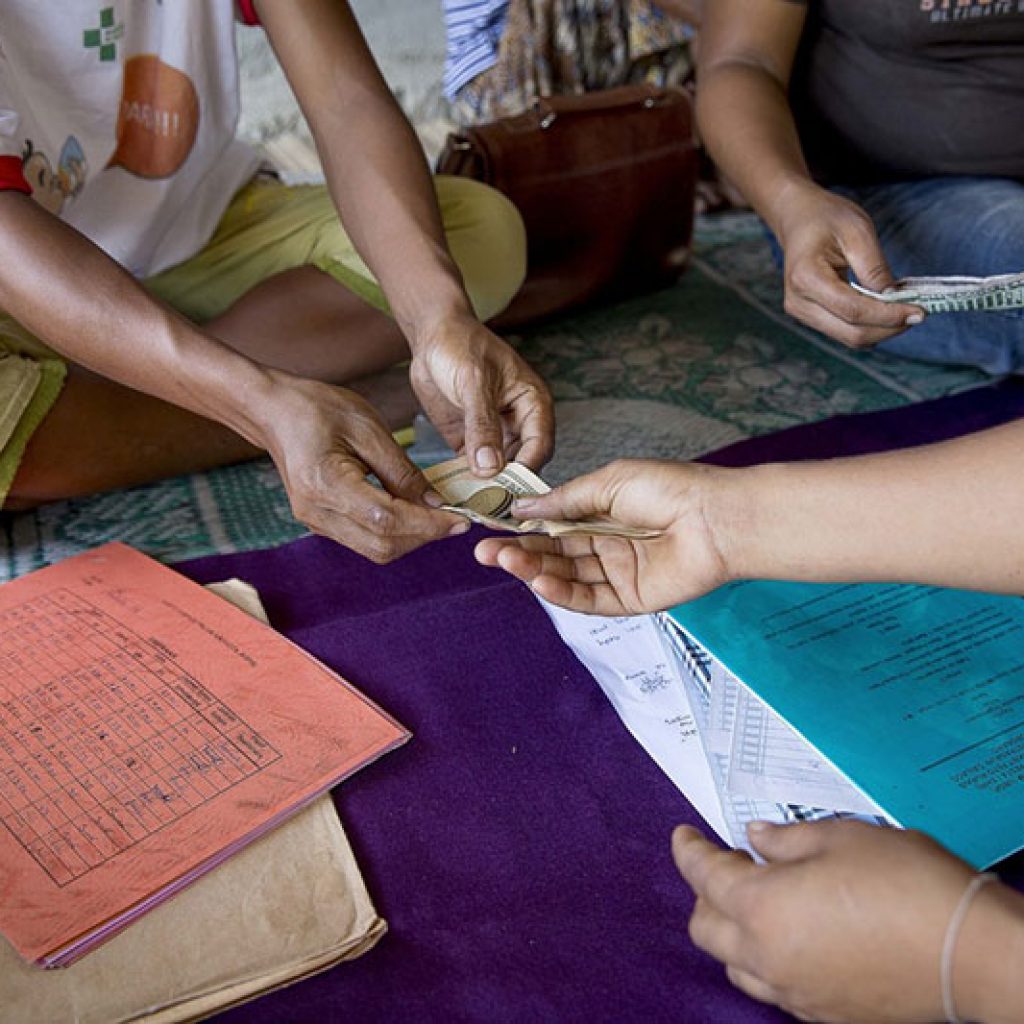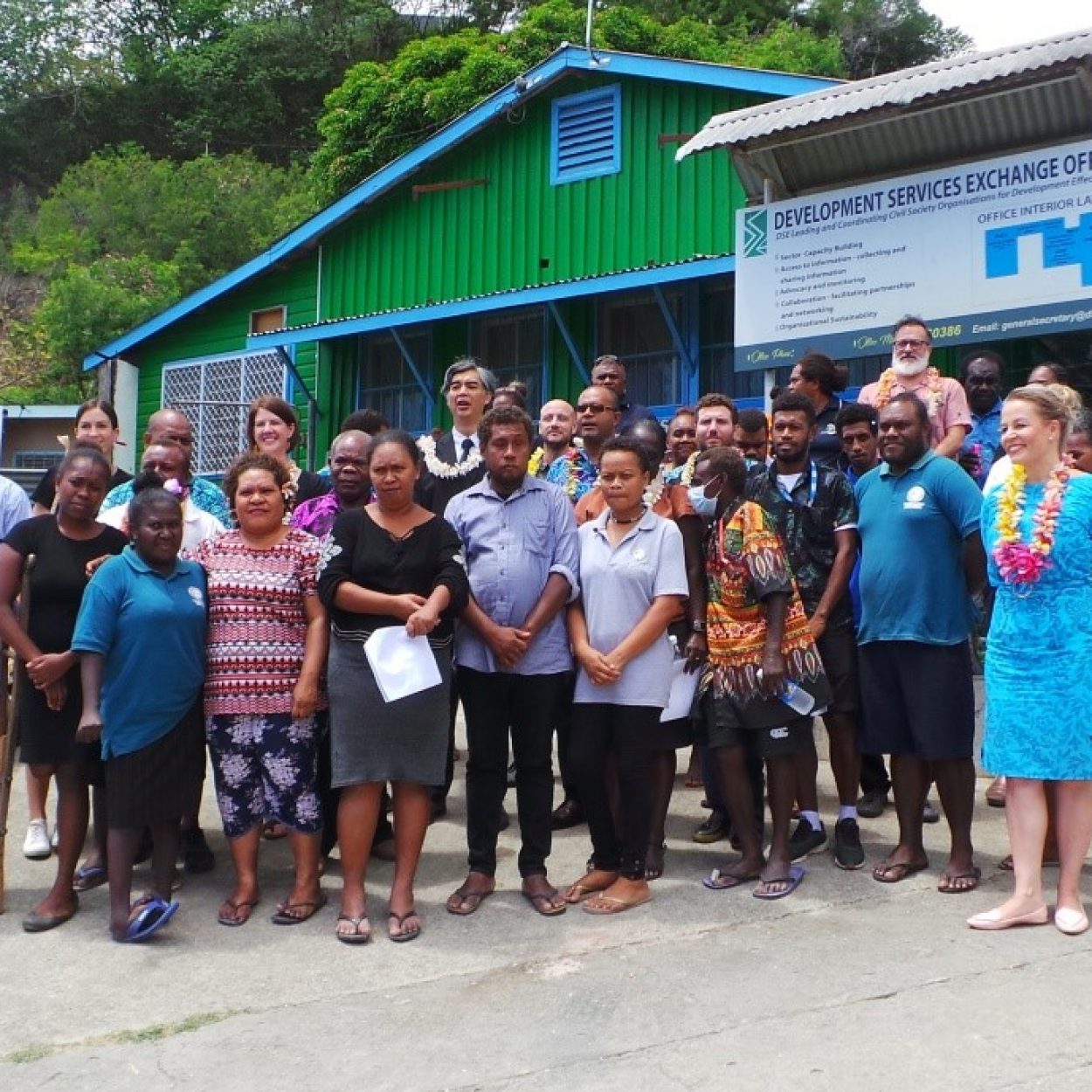
Advancing disability rights at all levels in Solomon Islands
To mark International Day of People with Disability, we caught up with Disabled Peoples Association of Solomon Islands’ Chief Executive Officer, Casper Joseph Fa’sala, to talk about the work they’ve been doing to promote respect, equality and justice for people living with disabilities in Solomon Islands.
Nothing about us without us.
It’s a phrase that has served as a powerful rallying call for disability activists around the world for decades. And one that for too long remained unanswered in Solomon Islands – until now.
“In the past, in terms of lobbying, it’s been able-bodied people and the government that have been in the vehicle, driving the country and its policies, while we have been behind the car. Now, the vehicle is being driven by us and what we are saying to the government and other civil society organisations is, ‘Please come with us.’”
A youth worker by training with years of experience in public service, Casper sees this shift in how the country understands disability as key to creating real change in Solomon Islander society.
Recent figures estimate that around 14% of the Solomon Islands’ population lives with a disability. A lack of formal protection combined with limited societal understanding of disability has meant that people with disabilities are some of the most marginalised and vulnerable people in the country. As Casper tells us, this marginalisation often starts from a young age. Education continues to be inaccessible for many children as most schools lack the infrastructure needed to make classes truly inclusive. Worst still, the education system has not adopted an Inclusive Education Policy for the inclusion of children with disabilities in formal education classes. When it comes to health, the greatest barrier people living with disabilities face continues to be a lack of understanding and acceptance from the medical community. They are also largely excluded from employment opportunities, with only a fraction of people living with disabilities working in formal employment or business.
Introducing: People with Disabilities Solomon Islands
Broad action is required to change Solomon Islands’ society so that people with disabilities can lead full, meaningful lives with equitable access to opportunities. Action that tackles attitudes, formal policies and access to resources.
A new partnership between Disabled Peoples Association of Solomon Islands (more commonly known as People with Disabilities Solomon Islands [PWDSI]), the European Union [1] and IWDA has been doing exactly this for the past year.
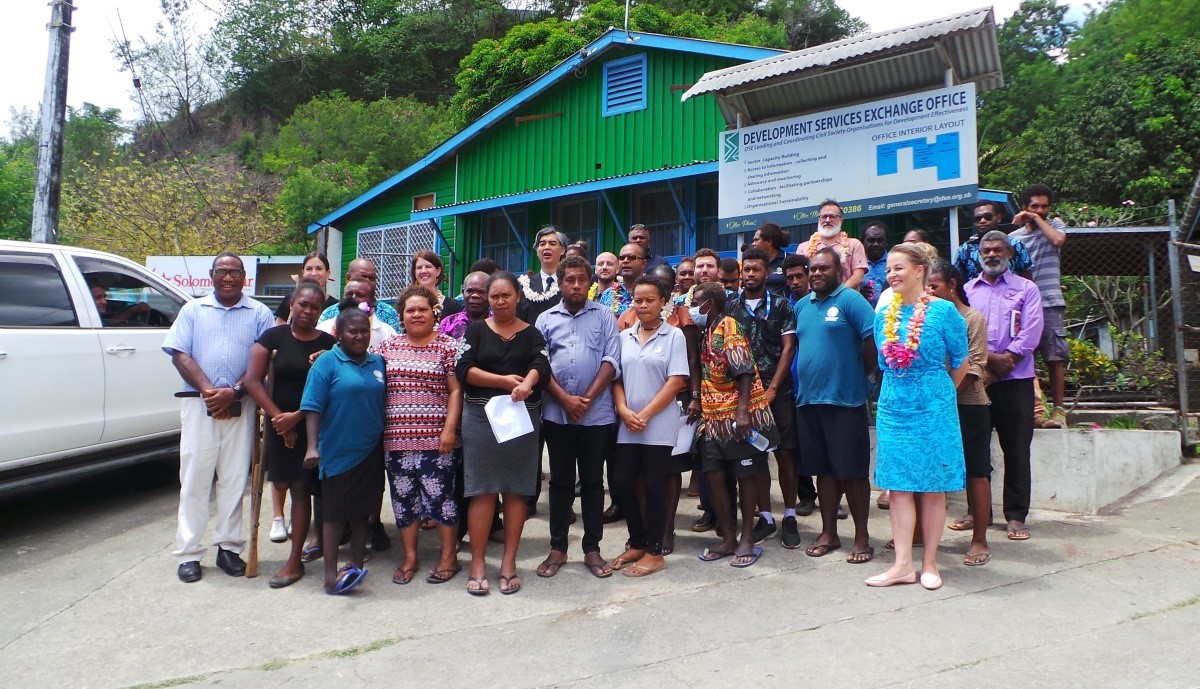
The EU-funded partnership has been targeting change at multiple levels within Solomon Islander society, starting with PWDSI’s work on the country’s National Disability Policy.
PWDSI has been supporting the government in updating and facilitating the implementation of the National Disability Inclusive Development Policy. Since April, they have been part of a working group designed to advance this work and advocate for Solomon Island’s ratification of the Convention on the Rights of Persons with Disabilities – a move that would provide more protection for the rights of people with disabilities in the country.
On Thursday 17th November 2022, the Solomon Islands Government Executive Arm of the Manasseh Sogavare-led government officially approved the National Disability Inclusive Development Policy. The Policy will be launched jointly by the Solomon Islands Government, PWDSI and its affiliates as the highlight in this year’s celebrations on 2nd December 2022, commemorating the International Day for People with Disability 2022.
Another key target area for the partnership focuses on increasing knowledge of human rights in communities across Solomon Islands – particularly when it comes to the rights of women with disabilities and gender-based violence.
Through a series of workshops and consultations, has been working with women’s rights organisations in Solomon Islands – including IWDA partners Christian Care Centre (CCC) and Family Support Centre (FSC) – to make their counselling, legal, case management and psychological first aid services more accessible to women with disabilities escaping violence.
Another key target area for the partnership focuses on increasing knowledge of human rights in communities across Solomon Islands – particularly when it comes to the rights of women with disabilities and gender-based violence.
Through a series of workshops and consultations, PWDSI has been working with women’s rights organisations in Solomon Islands – including IWDA partners Christian Care Centre (CCC) and Family Support Centre (FSC) – to make their counselling, legal, case management and psychological first aid services more accessible to women with disabilities escaping violence.
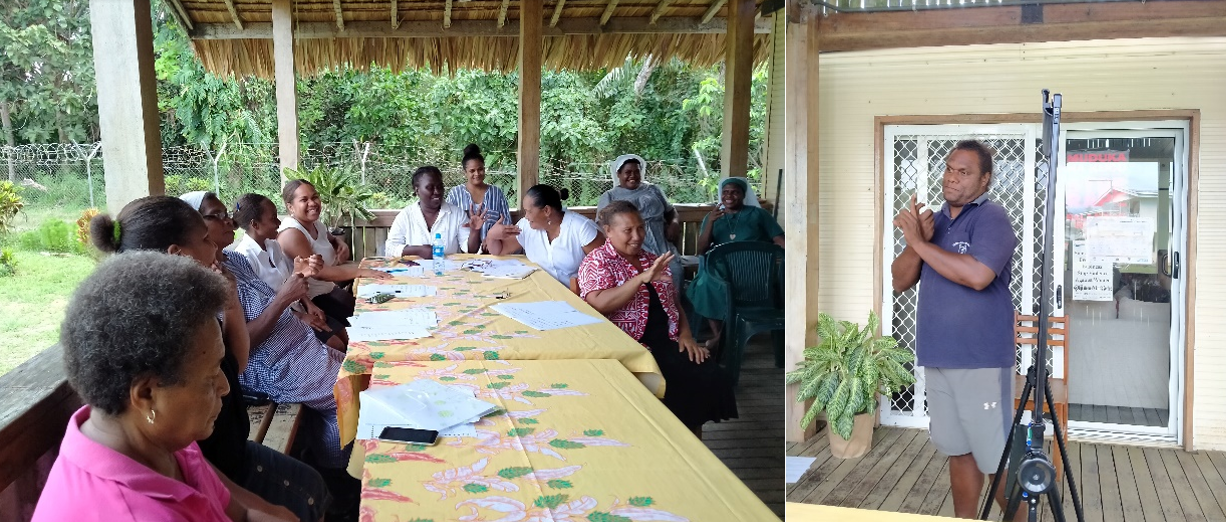
Globally, women and girls with disabilities experience violence at significantly higher rates than able-bodied women and girls. But many of the services designed to support people escaping violence can be inaccessible to them because of inadequate policies and procedures, a lack of adequate physical access or limited understanding of disability.
To overcome this, PWDSI has been supporting CCC and FSC in running accessibility audits of their services and providing recommendations of how they could be adapted to further the inclusion of women and girls with disabilities. They have also conducted a number of disability inclusion trainings to increase their staffs’ understanding of disability. As an FSC team member shared, the training “was an eye opener for many participants.”
PWDSI’s transformative work is ensuring that women and girls living with disabilities have equitable access to life-saving support services when they need it the most.
For Casper, this is essential to increasing their capacity to equally and meaningfully engage in Solomon Islander society and part of broader work to ensure women with disabilities are understood and included at all levels.
“We put a lot of emphasis here to support women and young girls with disabilities in order to try to capture some of the activities they can do. So far, we have trained them in terms of gender mainstreaming, in social finance and inclusion and in saving schemes,” he tells us. “There are other activities coming in like floral work and bee-keeping focused on increasing their income-generating activities to increase their self-sufficiency and capacity to saving.”
Women with disabilities fighting against gender-based violence
For this year’s 16 Days of Activism Against Gender-Based Violence, the Disability Women’s Empowerment Association – a group supported by PWDSI – will be running programs in and around the capital of Malaita, the country’s most populous province. They will be giving talks at the open market on what disability and inclusive development is and building relationships with local women’s groups and communities. They’re hoping this will build further conversations around how disability fits within visions of women’s empowerment and the importance of supporting the needs of women with disabilities at a rural level.
At the centre of Disability Women’s Empowerment Association’s advocacy is a simple but powerful goal – to help people gain an appreciation of the different abilities they have and their capacity to advocate for themselves on the issues that affect them.
Nothing about us without us.

Social Media: PWDSI Facebook link
Contact: pwdsimanager [at] gmail.com
[1] DPASI (PWDSI) is co-funded by IWDA and the European Union Programme – European Instrument for Democracy and Human Rights. IWDA are supporting PWDSI to implement the 3-year project “Protecting and promoting of civil, economic, and human rights for people with disabilities in Solomon Islands.
